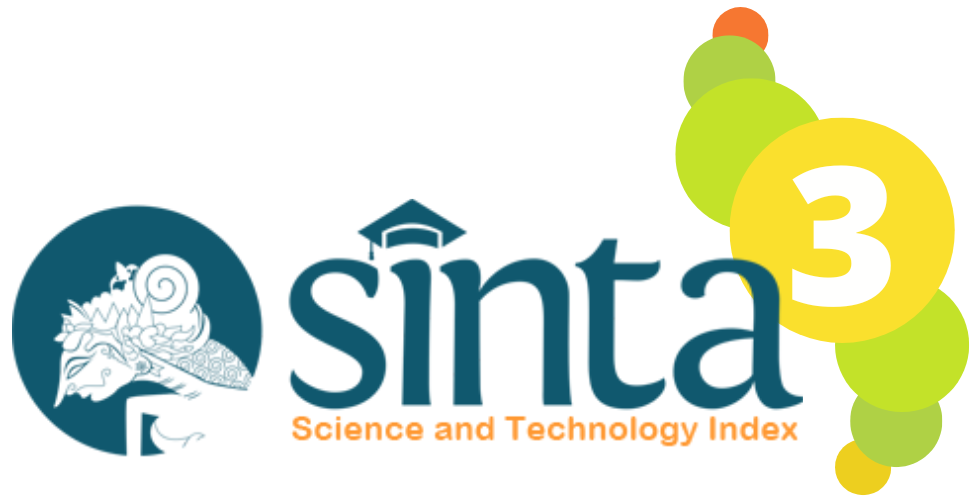Kendala Penerapan Pembelajaran Daring pada Mahasiswa di Fakultas Keguruan dan Ilmu Pendidikan Universitas Khairun
Sari
Kata Kunci
Teks Lengkap:
PDFReferensi
Ahmad, Z., & Ahmad, H. (2021). Perception, Motivation, and Student Learning Outcomes after using the Bot Telegram Iinterface Application. EDUKASI, 19(2).
Ahmad, Z., Ahmad, H., & Rahman, Z. (2022). Penggunaan Media Pembelajaran Augmented Reality Berbantuan Assemblr Edu Untuk Meningkatkan Hasil Belajar Siswa SMA Negeri 5 Kota Ternate. Jurnal Ilmiah Wahana Pendidikan, 8(23), 514–521. https://doi.org/10.5281/zenodo.7421774
Anhusadar, L. (2020). Persepsi Mahasiswa PIAUD terhadap Kuliah Online di Masa Pandemi Covid 19. KINDERGARTEN: Journal of Islamic Early Childhood Education, 3(1), 44. https://doi.org/10.24014/kjiece.v3i1.9609
Asmuni, A. (2020). Problematika Pembelajaran Daring di Masa Pandemi Covid-19 dan Solusi Pemecahannya. Jurnal Paedagogy, 7(4), 281. https://doi.org/10.33394/jp.v7i4.2941
Azevedo, J. P., Hasan, A., Goldemberg, D., Iqbal, S. A., & Geven, K. (2020). Simulating the Potential Impacts of COVID-19 School Closures on Schooling and Learning Outcomes: A Set of Global Estimates. Simulating the Potential Impacts of COVID-19 School Closures on Schooling and Learning Outcomes: A Set of Global Estimates, 9450. https://doi.org/10.1596/1813-9450-9284
Bullock, S. M. (2013). Using Digital Technologies to Support Self-Directed Learning for Preservice Teacher Education. Curriculum Journal, 24(1), 103–120. https://doi.org/https://doi.org/10.1080/09585176.2012.744695
Curran, V., Gustafson, D. L., Simmons, K., Lannon, H., Wang, C., Garmsiri, M., Fleet, L., & Wetsch, L. (2019). Adult learners’ perceptions of self-directed learning and digital technology usage in continuing professional education: An update for the digital age. Journal of Adult and Continuing Education, 25(1), 74–93. https://doi.org/10.1177/1477971419827318
Fatoni, Arifiati, N., Nurkhayati, E., Nurdiawati, E., Pamungkas, G., Adha, S., Purwanto, A., Julyanto, O., & Azizi, E. (2020). University Students Online Learning System During Covid-19 Pandemic: Advantages, Constraints and Solutions. Systematic Reviews in Pharmacy, 11(7), 570–576.
Fook, C. Y., & Sidhu, G. K. (2015). Investigating Learning Challenges Faced by Students in Higher Education. Procedia - Social and Behavioral Sciences, 186, 604–612. https://doi.org/10.1016/j.sbspro.2015.04.001
Forson, I. K., & Vuopala, E. (2019). Online learning readiness: perspective of students enrolled in distance education in Ghana. The Online Journal of Distance Education and E-Learning, 7(4), 277–294.
Harandi, S. R. (2015). Effects of e-learning on Students’ Motivation. Procedia - Social and Behavioral Sciences, 181, 423–430. https://doi.org/10.1016/j.sbspro.2015.04.905
Johnson, J. L. (2003). Distance Education: The Complete Guide to Design, Delivery, and Improvement. Elesevier. The Internet and Higher Education, 7(1), 71–74.
Markova, T., Glazkova, I., & Zaborova, E. (2017). Quality Issues of Online Distance Learning. Procedia - Social and Behavioral Sciences, 237(June 2016), 685–691. https://doi.org/10.1016/j.sbspro.2017.02.043
Muasyaroh, H., & Royanto, L. R. M. (2021). PEMBELAJARAN JARAK JAUH DI MASA PANDEMI COVID-19: PERAN LITERASI DIGITAL DAN TASK VALUE TERHADAP SELF-REGULATED LEARNING MAHASISWA. Jurnal Psikologi Ulayat, 8, 247–265. https://doi.org/10.24854/jpu172
Ningsih, I. W., Widodo, A., & Asrin, A. (2021). Urgensi kompetensi literasi digital dalam pembelajaran pada masa pandemi Covid-19. Jurnal Inovasi Teknologi Pendidikan, 8(2), 132–139. https://doi.org/10.21831/jitp.v8i1.35912
Pratiwi, E. W. (2020). Dampak Covid-19 Terhadap Kegiatan Pembelajaran Online Di Perguruan Tinggi Kristen Di Indonesia. Perspektif Ilmu Pendidikan, 34(1), 1–8. https://doi.org/10.21009/pip.341.1
Rochadiani, T. H., Santoso, H., & Dazki, E. (2020). PENINGKATAN LITERASI DIGITAL PADA MASA PANDEMI COVID-19. Jurnal Pengabdian Masyarakat Universitas Pradita, 1(1), 11–21.
Sit, J. W. H., Chung, J. W. Y., Chow, M. C. M., & Wong, T. K. S. (2005). Experiences of online learning: Students’ perspective. Nurse Education Today, 25(2), 140–147. https://doi.org/10.1016/j.nedt.2004.11.004
Susilo, A., Rumende, C. M., Pitoyo, C. W., Santoso, W. D., Yulianti, M., Herikurniawan, H., Sinto, R., Singh, G., Nainggolan, L., Nelwan, E. J., Chen, L. K., Widhani, A., Wijaya, E., Wicaksana, B., Maksum, M., Annisa, F., Jasirwan, C. O. M., & Yunihastuti, E. (2020). Coronavirus Disease 2019: Tinjauan Literatur Terkini. Jurnal Penyakit Dalam Indonesia, 7(1), 45. https://doi.org/10.7454/jpdi.v7i1.415
Triwiyanto, T. (2020). Bukan Sekedar Subsidi Pulsa, Untuk Mengurangi Angka Putus Sekolah Dampak Pandemi Covid-19. Seminar Nasional - Jurusan Administrasi Pendidikan Fakultas Ilmu Pendidikan Universitas Negeri Malang, 200, 325–335.
Wang, G., Zhang, Y., Zhao, J., Zhanh, J., & Jianh, F. (2020). Mitigate The Effects of Home Confinement on Children During the COVID-19 Outbreak. The Lancet, 396(10228), 21–27. https://doi.org/https://doi.org/10.1016/S0140- 6736(20)30547-X
Widodo, A., & Nursaptini, N. (2020). Problematika Pembelajaran Daring dalam Perspektif Mahasiswa. ELSE (Elementary School Education Journal) : Jurnal Pendidikan Dan Pembelajaran Sekolah Dasar, 4(2), 100. https://doi.org/10.30651/else.v4i2.5340
DOI: https://doi.org/10.33387/j.edu.v21i3.6202
Refbacks
- Saat ini tidak ada refbacks.
| Journal Name | Jurnal Edukasi |
| Print ISSN | 1978-6115 |
| Elektronik ISSN | 2597-9213 |
| Publisher | Fakultas Keguruan dan Ilmu Pendidikan (FKIP) Universitas Khairun |
| Address | Jalan Bandara Sultan Baabullah Kampus I Unkhair, Kelurahan Akehuda, 97728 Kecamatan Kota Ternate Utara, Provinsi Maluku Utara |
| Country | Indonesia |
| j.edukasi@unkhair.ac.id / edukasi2019@gmail.com | |
| URL | https://ejournal.unkhair.ac.id/index.php/edu/index |
| DOI | http://doi.org/10.33387/edu |
Indexed By:
-----------------------------------------------------------------------------------------------------------------------------------------------------------------------------

EDUKASI is licensed under a‚ Creative Commons Attribution-NonCommercial 4.0 International License.












